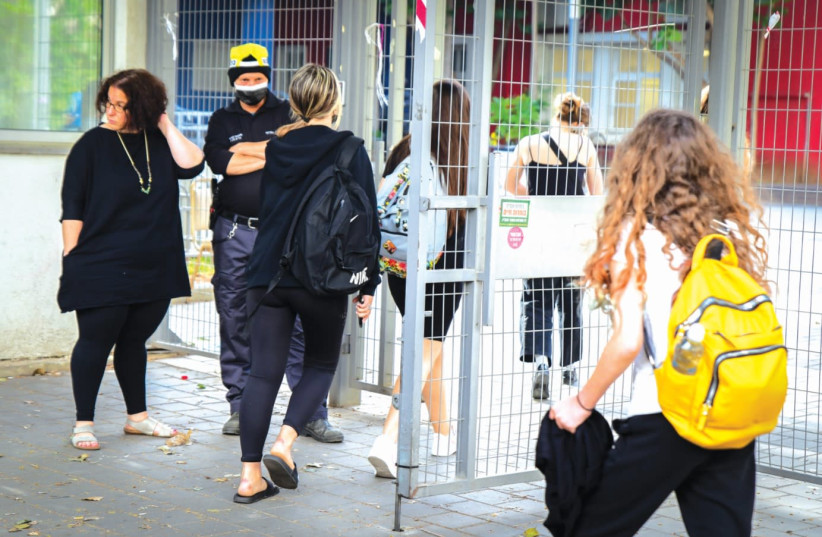A teacher at an elementary school in Ariel was been arrested Monday after being accused of sexually assaulting four female students, Israeli media reported. The male teacher had reportedly assaulted several students, receiving complaints from parents, students, and faculty.
The suspect reportedly took the children to a warehouse on the school's property before assaulting them on-site. All of the students assaulted attended the school where the teacher was employed, and all were females aged 14 and under.
Police have opened an investigation following suspicion raised after several complaints were filed against the teacher. The complaints had accumulated among students before a parent of a female student overheard multiple students talking about the same teacher.
The suspect's hearing took place at the Petach Tikvah Magistrate's Court on Monday, and had his detention extended by four days. The suspect's identity has not been released to the public following an open investigation.
This arrest is not the first of its kind in Israel this week. On Sunday, the office of the police spokesperson announced that Israel Police officers arrested a 39-year-old school counselor for sexually abusing students who attended his school.

Additionally, in 2021 The Jerusalem Post reported on an Israeli teacher who was exposed for sexual abuse on TikTok. The 37-year-old science teacher in Tel Aviv was arrested following an influx of posts on the social media platform TikTok sharing experiences with this teacher after he engaged in sexual activities with a 12-year-old student.
Police found that the teacher, Yotam Okon, had conducted numerous sexual conversations with his 12-year-old student on WhatsApp, and had asked her for explicit photographs and videos over the messaging app as well. He was removed from his position, though his place of employment had reportedly had many complaints against him and swept the reports under the rug.
Highest rates of sexual abuse reported in Religious Zionist schools
Students in religious public schools in Israel are at a higher risk of sexual harassment and assault than any other of the Jewish education streams, a new study examining cases of sexual abuse from the religious Zionist sector by the Ne’emanei Torah Va’avodah movement has found. Researcher Ariel Finkelstein analyzed the scope and profile of sexual abuse victims in Israeli local authorities’ social services departments in 2020, by sector or stream.
In Israel, there are multiple educational streams: Secular public schools (Mamlachti), religious public schools (Mamlachti Dati), and ultra-Orthodox schools, which are either private or semi-private.
The distribution of the data on sexual abuse was filtered by sector, according to the type of educational stream where the victims are currently or were educated in their childhood.
What does the data tell us about Israeli schools?
According to the survey, the rate of victims in the welfare services following sexual abuse is higher among the students of the religious public school stream, who mainly represent people who identify themselves as religious-Zionist. For every 1,000 students in the stream, there are 2.39 students who were treated in welfare services as a result of sexual abuse, higher than in ultra-Orthodox education (1.98), and more than double the amount in the secular public school stream (1.04).
The study found a correlation between religiosity and a higher proportion of males treated for sexual abuse, especially among children.
Among secular male and female students ages 3-18 who were treated following sexual abuse, boys make up less than a third (31%), while in the religious public school stream, boys make up almost half of the victims (48%), and those in the ultra-Orthodox stream make up over half (53%).
For every 1,000 boys in the religious public school system, there are 2.3 who are treated in welfare services for sexual abuse, compared to 2.07 among those in ultra-orthodox education and only 0.61 among boys in secular schools.
“The results of the study are a cause of great concern,” said Shmuel Shatach, Executive Director of Ne’emanei Torah Va’avodah.
He added that these results “are a first step in the necessary, in-depth discussions that oblige us to recognize this phenomenon, fight it, and to wake up from the illusion that a separated society [of men from women] is a guarantee of preventing harm.”
Zvika Klein and Jerusalem Post Staff contributed to this report.
